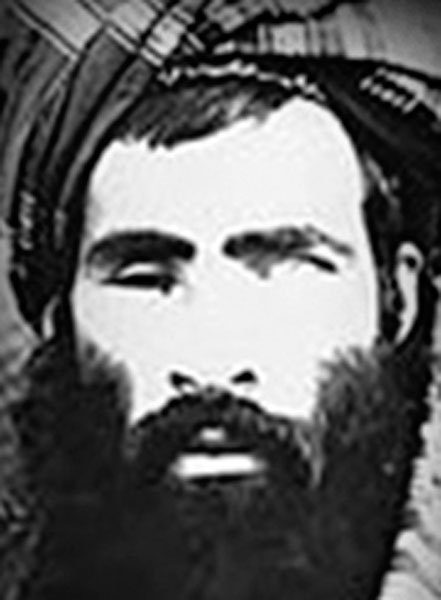 |
|
Mullah Omar of Afghanistan's Taliban regime is shown in this undated US National Counterterrorism Center image.[Photo/Agencies] |
KABUL - Afghanistan said on Wednesday that Mullah Omar, elusive leader of the Taliban movement behind an escalating insurgency against the government in Kabul, died more than two years ago.
The announcement came a day or so before a second round of peace talks had been tentatively scheduled, and news of the fate of the one-eyed Omar could deepen Taliban divisions over whether to pursue negotiations and who should replace him.
Omar had not been seen in public since fleeing when the Taliban was toppled from power by a US-led coalition in 2001, and there has been speculation for years among militant circles that he was either incapacitated or had died.
"The government ... based on credible information, confirms that Mullah Mohammad Omar, leader of the Taliban, died in April 2013 in Pakistan," the presidential palace said in a brief statement, without specifying what the information was.
"The government of Afghanistan believes that grounds for the Afghan peace talks are more paved now than before, and thus calls on all armed opposition groups to seize the opportunity and join the peace process."
The Taliban's regular spokesman could not be reached for comment through normal channels.
The comments came as preparations were under way for the next round of talks between the Afghan government and the Taliban, provisionally planned for Thursday or Friday in a location yet to be confirmed.
President Ashraf Ghani is keen to broker a settlement with the insurgents, who have been gaining territory in pockets of the country and intensifying attacks on military and political targets.
Thousands of civilians and security personnel are killed each year in the violence, which has worsened since NATO withdrew most of its forces from the country at the end of 2014.
Omar's death is likely to intensify the internal tussle to replace him.
The Taliban is already split between senior figures who support talks with Kabul to end the 13-year war and others who want to continue to fight for power.
A senior Afghan Taliban commander based in neighbouring Pakistan said Omar had died of natural causes, although he did not specify when. "We are at a crossroads, and it will take some time to resolve this (leadership) issue," the militant said.
He added that a faction within the Taliban wanted one of Omar's sons to take over, while another favoured the promotion of political leader Akhtar Mohammad Mansour, who has been among those who support peace talks.